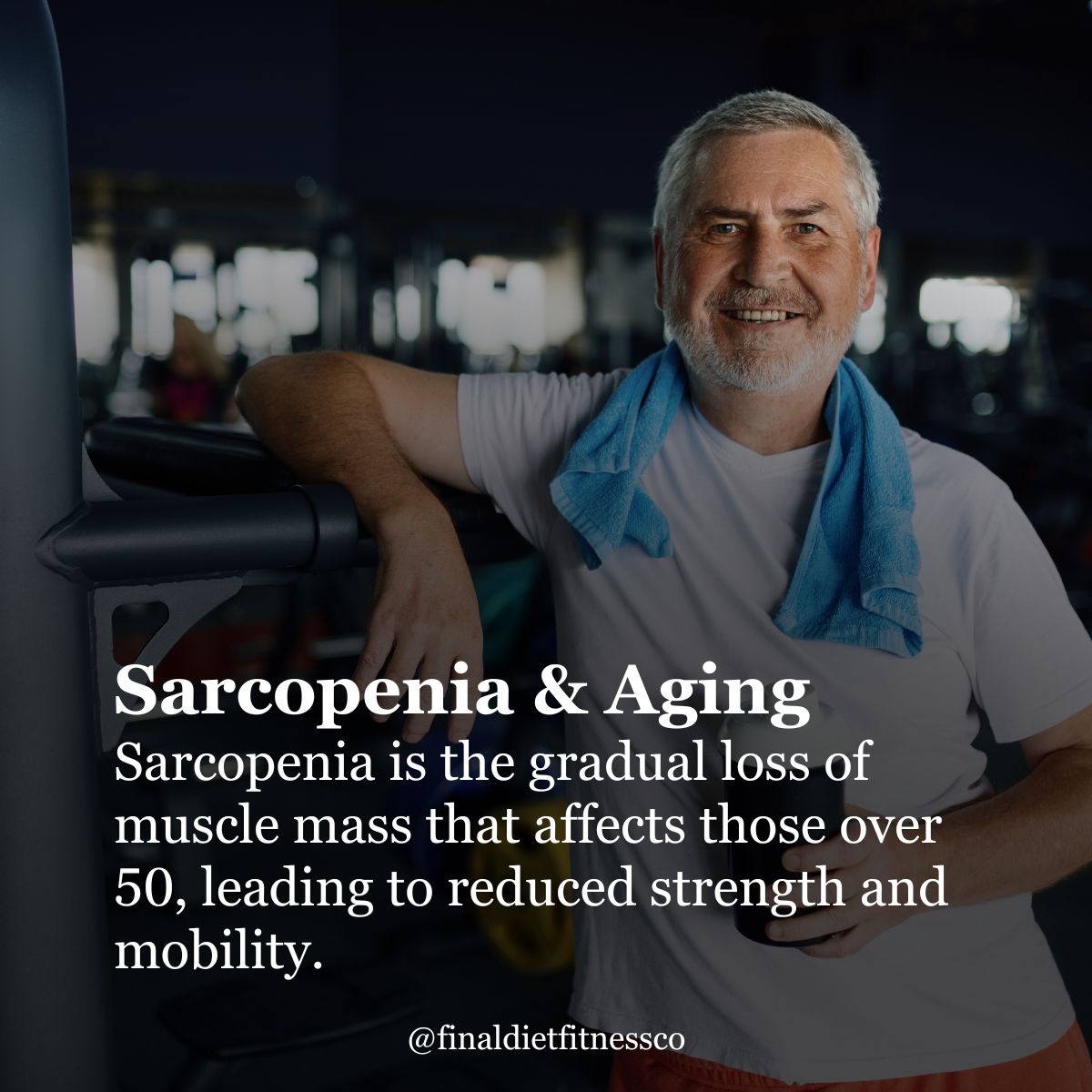
Sarcopenia is the gradual loss of muscle mass and strength that happens naturally as we age. While muscle loss is a normal part of the aging process, it accelerates after the age of 50 and can become a serious concern. This condition often leads to reduced physical capabilities, increasing the risk of frailty, falls, and loss of independence.
As muscle mass decreases, it affects many daily activities like walking, lifting, and even standing up from a chair. Sarcopenia also comes with the risk of other health issues such as osteoporosis and a weakened metabolism, further complicating the aging process.
Why Strength Training is Crucial for Those Over 50
-
Prevents Muscle Loss
One of the most effective ways to fight sarcopenia is through strength training. Resistance exercises help to preserve, and even build, muscle mass as you age. This allows older adults to retain the muscle strength needed for everyday tasks. -
Improves Balance and Reduces Fall Risk
Aging often comes with diminished balance and coordination. Strength training helps to improve stability by targeting muscles that support and stabilize the body. Stronger muscles lead to better coordination, significantly reducing the risk of falls. -
Supports Bone Health
As we age, bones naturally become more brittle, which can lead to osteoporosis. Strength training, particularly weight-bearing exercises, increases bone density and helps prevent fractures. Building muscle also strengthens the bones that support it, contributing to overall bone health. -
Boosts Metabolism and Aids in Weight Management
Maintaining muscle mass is crucial for a healthy metabolism. Muscles burn more calories than fat, even at rest. Therefore, building muscle through strength training can help prevent weight gain and ensure your metabolism remains efficient as you age. -
Enhances Mental and Emotional Health
Strength training is not just about physical benefits; it also has a profound impact on mental health. Exercise, including strength training, has been shown to reduce symptoms of anxiety and depression, while also improving cognitive function. For those over 50, staying active can lead to better mental clarity and an improved mood. -
Promotes Independence
One of the greatest benefits of strength training for those over 50 is maintaining independence. As muscles weaken, simple tasks like lifting grocery bags, climbing stairs, or even getting up from a chair become increasingly difficult. Regular strength training helps keep you independent and able to perform everyday activities with ease.
Conclusion: Embrace Strength Training for Healthy Aging
Sarcopenia doesn’t have to be a foregone conclusion as we age. By incorporating regular strength training into your routine, you can combat muscle loss, improve bone health, enhance balance, and even boost mental well-being. It’s never too late to start, and the benefits of strength training extend far beyond the gym, helping you maintain your independence and enjoy a better quality of life as you age.



